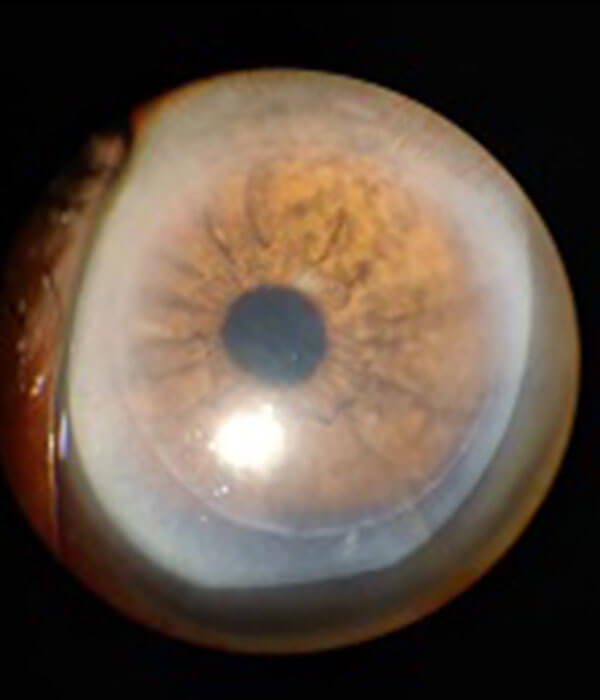
Cornea Surgery
The clear transparent layer that is on the front of your eye, helps to focus light so the person can see clearly. If there is any type of damage, it needs to be replaced. Your eye doctor will replace the entire cornea or part of it with the healthy donor cornea, obtained from those who donate their eyes at the time of their death.
Keratoplasty, a cornea transplant procedure can help restore vision. Also it helps in improving the a cosmetic appearance of the cornea if it is white or scarred.
Who requires Cornea Transplant surgery?
When the light rays pass through a damaged cornea, they can get distorted and change the vision.
There are several eye problems that can be corrected:
- Scarring of the cornea due to some injury or infection.
- Ulcers in cornea
- When the cornea bulges out in advanced Keratoconus
- Thinning, swelling, or even clouding of the cornea.
- Any inherited eye disease or corneal dystrophies
- Problems that are due to some prior operation like corneal decompensation following cataract surgery or vitreoretinal surgery.
The procedure is decided by your eye doctor, after seeing the condition of the patient.
What is full-thickness corneal transplant and partial-thickness corneal transplant?
In the full thickness corneal transplant, all the layers of your cornea are removed and replaced with a full thickness donor corneal graft. A new cornea is sewn onto the eye by your eye specialist with the stitches thinner than the hair. In case of severe cornea injury, or bad bulging, scarring, this procedure is used.
In case of partial thickness corneal transplant, your eye doctor will inject air that helps in lifting off and separating thin outer and middle layers of your cornea. The people with a corneal scar that hasn’t affected the inner layer may get this done.
The healing time is less in comparison to the full-thickness corneal transplant.
What is the surgical procedure for a corneal transplant?
Your eye doctor will conduct some lab tests so that your regular health is checked. You might be required to stop taking some medicines like aspirin, some days before the procedure. Some antibiotic drops are used in the eye before the transplantation to prevent any infection.
These surgeries are generally conducted under local anaesthesia. The patient can go home the same day. Your eye specialist will conduct the entire surgery using a microscope.
What is the recovery state after corneal transplant surgery?
An eye patch is worn for at least a day followed by frequent instillation of medications for the first few days. Your eye might appear red and even sensitive. Some eye drops are recommended to ease the inflammation and lower the rate of infections.
Where can you get corneal transplant surgery done?
If you are facing any such above mentioned disorders do consult Dr.Sridevi Haldar at Dr. Haldar’s OrthoVision Healthcare, Noida as she is has expertise in this field.
Before & After Gallery

Molten metal burn

After Tenonplasty

Corneal Opacity

After Cornea Transplant

Fuch’s Dystrophy

After DSAEK
Video Archive

Dr. Sridevi Haldar
DNB, FCRS
Cataract,Cornea & Refractive Eye Surgeon
Dr. Sridevi Haldar (Gunda) is an eminent eye surgeon providing expert services to leading city hospitals across Delhi NCR. She has been associated with Dr. Shroff Eye Hospital, Delhi; Venu Eye Institute, Saket and Sharpsight Centre in the past.
Qualification: After graduating in year 2005, she pursued her interest of specializing in the field of Ophthalmology and completed her post-graduation from world renowned, prestigious instate;”